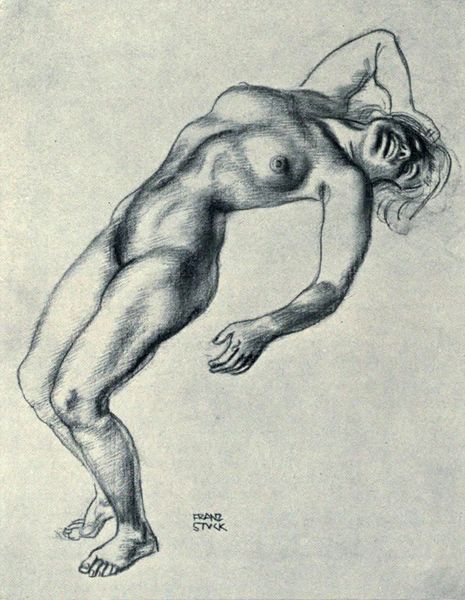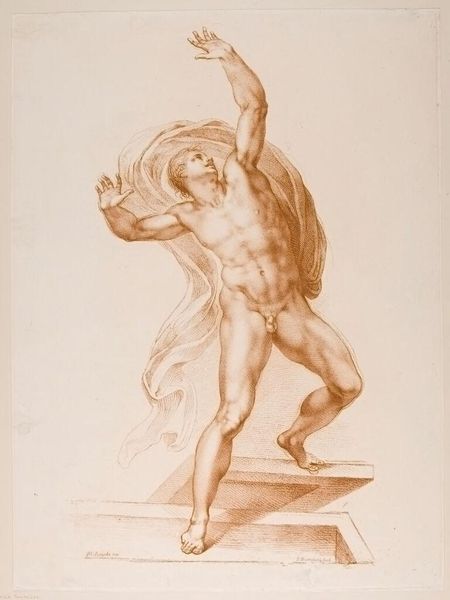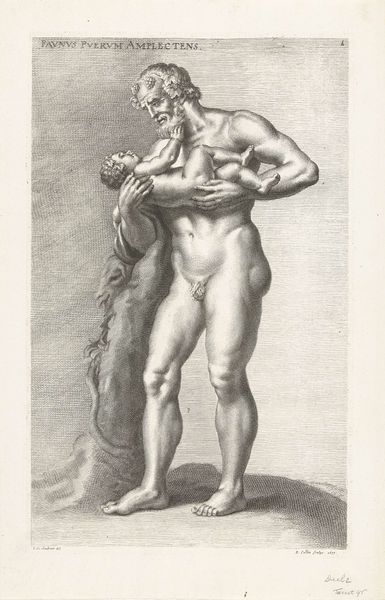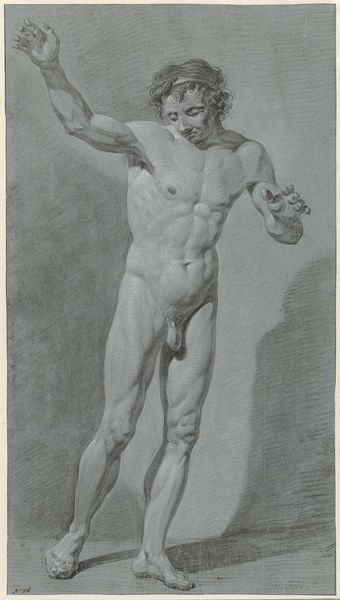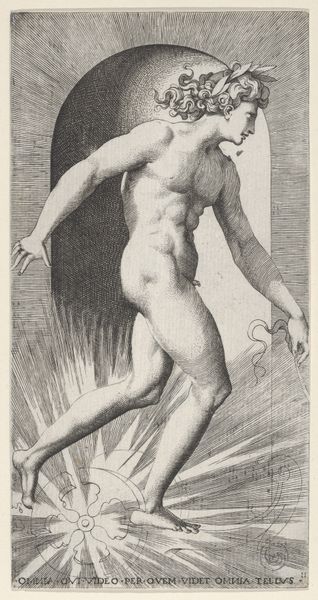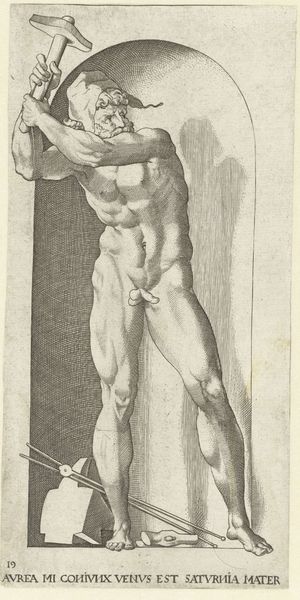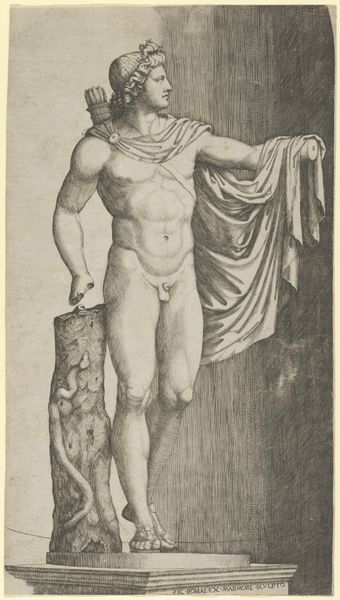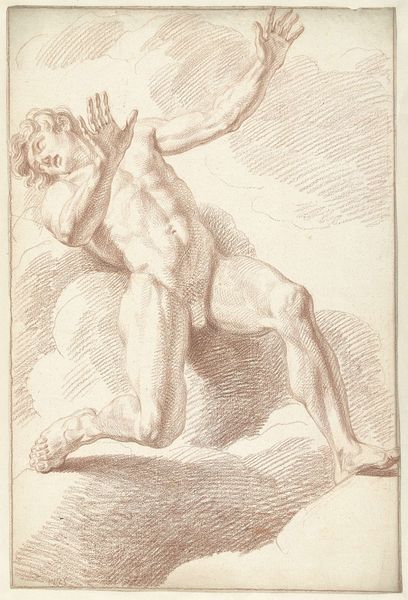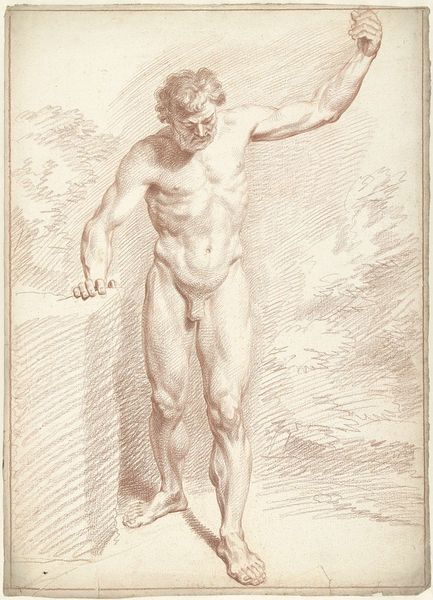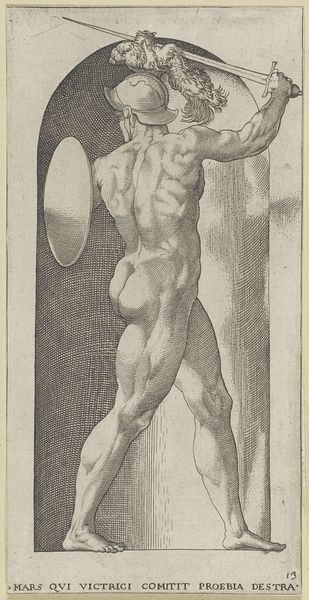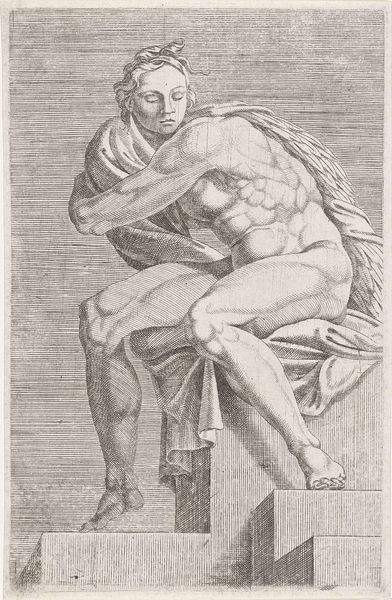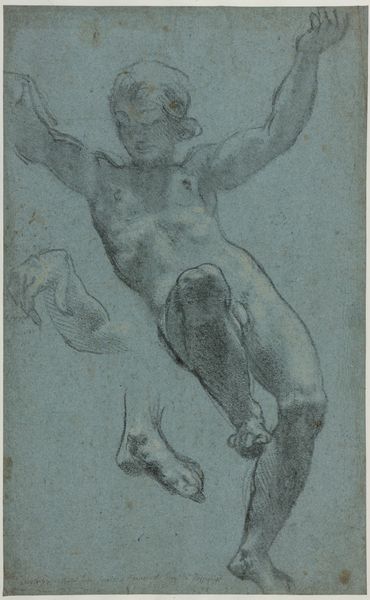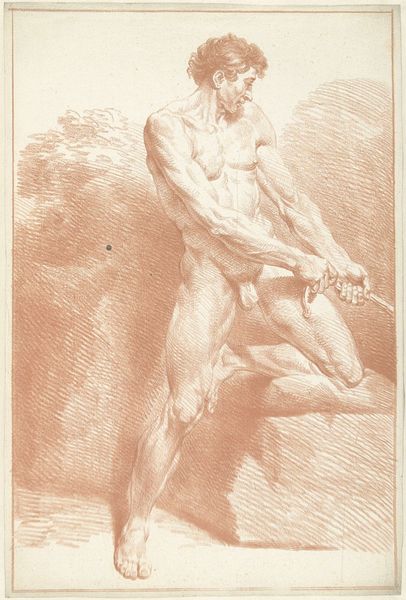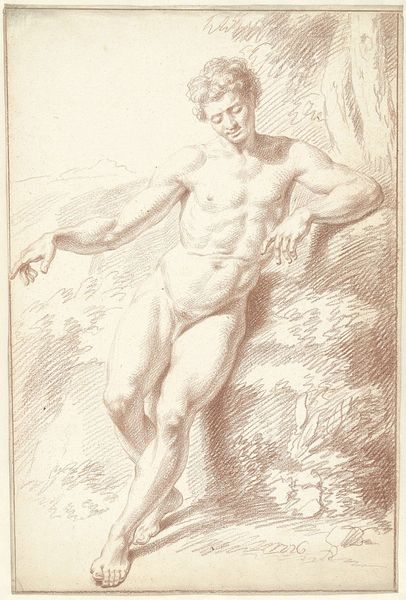
drawing, graphite
#
pencil drawn
#
drawing
#
high-renaissance
#
pencil sketch
#
charcoal drawing
#
figuration
#
pencil drawing
#
sketch
#
christianity
#
graphite
#
portrait drawing
#
history-painting
#
italian-renaissance
#
nude
#
graphite
Dimensions: 36.7 x 22 cm
Copyright: Public domain
Michelangelo created this ink on paper drawing called "The Risen Christ." Michelangelo lived in a society deeply shaped by the Catholic Church. He navigated the complex politics of Renaissance Italy, influenced by religious doctrine and the expectations of powerful patrons. The representation of Christ's resurrection carries profound theological weight, symbolizing triumph over death. Michelangelo’s depiction of the nude male figure is a clear reference to classical Greek sculpture, which idealized the male form and became closely associated with notions of beauty, strength, and virtue. Here, Christ is depicted as physically powerful. His body is idealized, embodying a certain standard of masculine beauty valued during the Renaissance. The pose conveys a sense of upward movement, and spiritual transcendence as he steps out of his tomb. Michelangelo has chosen to emphasize Christ’s physical presence as a way to affirm the miracle of the resurrection. Consider how the intersection of religious belief, artistic tradition, and social expectations shaped Michelangelo’s interpretation. This image encourages us to reflect on enduring questions of faith, identity, and the power of art to visualize the divine.
Comments
No comments
Be the first to comment and join the conversation on the ultimate creative platform.
